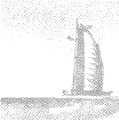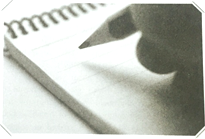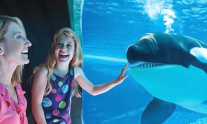
ΓΨΧβΡΩΓΩΈε“ΜΦΌΤΎΦ¥ΫΪά¥ΝΌΘ§–Γ–ΥΗχ‘ΕΖΫΒΡΒήΒή–ΓΆζΖΔΝΥΖβΒγΉ”” ΦΰΓΘΦΌ»γΡψ «–ΓΆζΘ§«κΗυΨί” ΦΰΡΎ»ί”η“‘ΜΊΗ¥ΓΘΜΊ–≈ΒΡΩΣΆΖΚΆΫαΈ≤“―Ψ≠Ηχ≥ω(≤ΜΦΤ»κΉή¥ ΐ)ΓΘ
“Σ«σΘΚ1. ¥ ΐ60ΓΣ80ΓΘ2. Χθάμ«εΈζΘ§”οΨδΝ§ΙαΘ§Ή÷ΦΘΙΛ’ϊΓΘ3. “‘œ¬ΡΎ»ίΫωΙ©≤ΈΩΦΘ§“≤Ω…Ή‘––Α≤≈≈ΦΤΜ°ΓΘ
ΒΊΒψΘΚΡœΨ©ΓΔ±±Ψ©ΓΔΚΘΡœΓ≠Γ≠
ΜνΕ·ΘΚ”ΈάάΓΔ≈Ρ’’ΓΔΜ°¥§Γ≠Γ≠
Οϊ ΛΘΚ–ΰΈδΚΰΓΔΧλΑ≤Ο≈ΓΔ≥Λ≥«ΓΔΧλ―ΡΚΘΫ«Γ≠Γ≠
≥ΈοΘΚ±±Ψ©ΩΨ―ΦΓΔΥ°ΙϊΓ≠Γ≠
ΫΜΆ®ΙΛΨΏΘΚΤϊ≥ΒΓΔΜπ≥ΒΓΔΖ…ΜζΓ≠Γ≠
From: Xiaoxing@yahoo. com |
To: Xiaowang@sina. com |
Dear Xiaowang, |
|
From: Xiaowang@sina. com |
To: Xiaoxing@yahoo. com |
Dear Xiaoxing, |
ΓΨ¥πΑΗΓΩDear Xiaoxing,
Glad to hear from you.
It is really a good idea to travel with you. I'd like to start our travel on May 1st. First, we will take a bus to Nanjing. We can go boating on Xuanwu Lake. Then we'll go to Beijing by train at night. In Beijing, we'll visit the Great Wall, Tian'anmen Square and the Palace Museum. We can take photos there, do some shopping and eat some famous food like Beijing Roast Duck. I'm sure we'll have a good time!
Best wishes!
ΓΨΫβΈωΓΩ±ΨΧβ τ”ΎΧβΗ…άύΉςΈΡΘ§÷ς“Σ”ΠΗΟΗχ–Γ–ΥΒΡΜΊ–≈Θ§‘Ύ–¥Ής ±”ΠΉΔ“βΖϊΚœΧβ“βΘ§ΗυΨί“Σ±μ¥οΒΡΡΎ»ί»ΖΕ®Υυ”Ο ±Χ§Θ§”ο―‘±μ¥ο“ΣΖϊΚœ”Δ”ο÷–ΒΡœΑΙΏΓΘ
“ΜΓΔ‘ΡΕΝΧα ΨΘ§≈Σ«εΧβΡΩ–≈œΔΘ§Ος»Ζ–¥Ής“ΣΒψΓΘ
1.ΦΌΤΎ»ΞΝΥΡœΨ©Θ§±±Ψ©Θ§ΚΘΡœ
2.»Ξ”ΈάάΘ§≈Ρ’’Θ§Μ°¥§
3. ≤ΈΙέΝΥΚήΕύΟϊ ΛΙ≈ΦΘΘ§≥‘ΝΥ±±Ψ©ΩΨ―Φeat some famous food like Beijing Roast Duck
ΕΰΓΔΗυΨί“ΣΒψΘ§–¥≥ωΙΊΦϋ¥ Θ§ΕΧ”οΜρΨδΉ”ΓΘ
»ΐΓΔΉι¥ ≥…ΨδΘ§Ν§¥ ≥…ΤΣΓΘΉΔ“β Ι”Ο“ΜΑψœ÷‘Ύ ±ΓΘ



| ΡξΦΕ | ΗΏ÷–ΩΈ≥Χ | ΡξΦΕ | ≥θ÷–ΩΈ≥Χ |
| ΗΏ“Μ | ΗΏ“ΜΟβΖ―ΩΈ≥ΧΆΤΦωΘΓ | ≥θ“Μ | ≥θ“ΜΟβΖ―ΩΈ≥ΧΆΤΦωΘΓ |
| ΗΏΕΰ | ΗΏΕΰΟβΖ―ΩΈ≥ΧΆΤΦωΘΓ | ≥θΕΰ | ≥θΕΰΟβΖ―ΩΈ≥ΧΆΤΦωΘΓ |
| ΗΏ»ΐ | ΗΏ»ΐΟβΖ―ΩΈ≥ΧΆΤΦωΘΓ | ≥θ»ΐ | ≥θ»ΐΟβΖ―ΩΈ≥ΧΆΤΦωΘΓ |
ΩΤΡΩΘΚ≥θ÷–”Δ”ο ά¥‘¥ΘΚ Χβ–ΆΘΚ
ΓΨΧβΡΩΓΩ ιΟφ±μ¥οΓΘ
ΦΌ…ηΡψ «Tony, «κΗυΨίœ¬Οφ±μΗώΒΡ–≈œΔ–¥“ΜΤΣ50¥ Ήσ”“ΒΡΉ‘Έ“Ϋι…ήΘ§ΉΔ“β¥σ–Γ–¥ΦΑ±ξΒψΖϊΚ≈ΓΘ
“Σ«σΘΚ1. ΥυΗχΒΡ–≈œΔ±Ί–κ»Ϊ≤Ω”Ο…œΓΘ
2. ±Ί“Σ ±Ω…‘ωΦ”ΡΎ»ίΓΘ
3. ±μ¥οΝ§ΙαΘ§ ι–¥ΙΛ’ϊΙφΖΕΓΘ
| –’Οϊ | Tony Green |
ΡξΝδ | 12 | |
ά¥Ή‘”Ύ | America | |
÷Α“Β | student | |
ΑύΦΕ | 2 | |
ΒγΜΑΚ≈¬κ | 62989898 | |
œ≤ΜΕΒΡ―’…Ϊ | red | |
Ήνœ≤ΜΕΒΡ‘ΥΕ· | football |
≤ιΩ¥¥πΑΗΚΆΫβΈω>>
ΩΤΡΩΘΚ≥θ÷–”Δ”ο ά¥‘¥ΘΚ Χβ–ΆΘΚ
ΓΨΧβΡΩΓΩ‘ΡΕΝάμΫβ
(2013ΧλΫρ)
Dubai is a city of big businessΘ§expensive hotelsΘ§skyscrapers(ΡΠΧλ¬Ξ)Θ§and shopping mallsΘ°In the early 20th centuryΘ§Dubai was a successful trading portΘ°People from the world stopped in Dubai to do businessΘ°But it was still a small cityΘ§and most people lived as fishermen and businessmenΘ°Then in 1966Θ§oil was discoveredΘ°This brought a lot of money into the areaΘ§and soon Dubai began to changeΘ°
Today Dubai is one of the world÷s most important business centersȰIn factȧeach year the city gets its money mainly from businessȧnot oilȰ
Recently Dubai has attracted more and more visitors from abroadΘ°They come to relax on its
beachesΘ§and every yearΘ§millions visit just to go shoppingΘΓ
Dubai is also one of the worldΓ·s fastest growing citiesΘ°Many tall buildings are built in monthsΘ°The city also has many manΘ≠made islandsΘ°One of theseΘ§the Palm JumeirahΘ§is like a palm tree(ΉΊιΒ ς)and is very beautifulΘ°
The city is still an amazing mix(ΜλΚœΧε)of people from different countriesΘ°The people from 150 countries live and work in DubaiΘ§and foreigners now outnumber Dubai natives(±ΨΒΊ»Υ)by eight to oneΘΓ

Many people welcome the cityΓ·s growthΘ°But an increasing number of Dubai natives worry about the speed of changeΘ°As a Dubai native saysΘ§ΓΑWe must always remember where we came fromΘ°Our kids must know we worked veryΘ§very hard to get where we are nowΘ§and thereΓ·s a lot more work to doΘ°Γ±

ΓΨ1ΓΩWhy did people stop in Dubai in the early 20th centuryΘΩ
AΘ°To relaxΘ°
BΘ°To
CΘ°To go shoppingΘ°
DΘ°To do businessΘ°
ΓΨ2ΓΩWhich of the following is NOT trueΘΩ
AΘ°Dubai has created many manΘ≠made islandsΘ°
BΘ°There are many foreigners working in DubaiΘ°
CΘ°Many international visitors come to Dubai every yearΘ°
DΘ°Dubai now gets money mainly from selling oilΘ°
ΓΨ3ΓΩWhat does the underlined wordΓΑoutnumberΓ±meanΘΩ
AΘ°To be smaller in size than another groupΘ°
BΘ°To be more in number than another groupΘ°
CΘ°To be bigger in area than another groupΘ°
DΘ°To be smaller in area than another groupΘ°
ΓΨ4ΓΩIn the last paragraphΘ§what does the underlined part meanΘΩ
AΘ°We should always visit DubaiΘ°
BΘ°We should learn from foreignersΘ°
CΘ°We must always remember our pastΘ°
DΘ°We must only think about the futureΘ°
ΓΨ5ΓΩWhatΓ·s the main idea of the passageΘΩ
AΘ°Dubai is growing very fastΘ°
BΘ°Dubai was a big city before 1966Θ°
CΘ°Many tall buildings are built in monthsΘ°
DΘ°Many tourists come to relax on DubaiΓ·s beachesΘ°
≤ιΩ¥¥πΑΗΚΆΫβΈω>>
ΩΤΡΩΘΚ≥θ÷–”Δ”ο ά¥‘¥ΘΚ Χβ–ΆΘΚ
ΓΨΧβΡΩΓΩAnimals are our good friends. Some are active and others are quiet. But do you know anything about the clever animals in the world? Just have a look!
Animals | Interesting facts |
| Kelly is an African elephant. Now she is 19 years old. She lives in the zoo. Kelly has produced more than 100 paintings since last year. She has made over $3,500 for the zoo. Newspaper reporters wrote about Kelly, and then people went to buy her pictures. |
| Nana is a clever black and white dog in England. He can do many things just like a human. He can walk on two legs and close the door. Also, he is able to get things for his master, such as newspapers and the TV remote control. WhatΓ·s more, he can sleep and use the quilt very well. No games are difficult for him! |
| Koko is a 44-year-old chimpanzee. He has lived with human for tens of years and can ΓΑtalkΓ± to humans with his hands. He can do simple gestures* and that helps people to understand him. |
ΓΨ1ΓΩHow many kinds of animals are mentioned in the passage?
A. Two. B. Three. C. Four. D. Five.
ΓΨ2ΓΩWhere does Kelly come from?
A. America B. Australia C. Africa. D. Austria
ΓΨ3ΓΩHow do Koko talk with humans?
A. By using eyes B. By painting. C. By writing D. By using hands
ΓΨ4ΓΩWhat CANΓ·T Nana do according to the passage?
A. wash clothes B. play ball games
C. get newspaper for his master D. walk on two legs
ΓΨ5ΓΩThe passage tells us about some _________ animals in the world.
A. active B. quiet
C. expensive D. clever
≤ιΩ¥¥πΑΗΚΆΫβΈω>>
ΩΤΡΩΘΚ≥θ÷–”Δ”ο ά¥‘¥ΘΚ Χβ–ΆΘΚ
ΓΨΧβΡΩΓΩ
Note-taking is a skill that can help you do well in all your schoolwork. It can make you confident when you are studying. But unluckily, most students donΓ·t know ______ to take notes.
If your ______ writes notes on the blackboard , thatΓ·s great. You can copy them and write down the most important facts of all in class.
Different teachers do things differently. ______, some teachers may focus on lots of dates and facts in class, but they only ______ the important ones on the blackboard. Other teachers may not write anything down, _______ they may repeat them.
DonΓ·t try to write down every word in class, or you might miss some ______ points. Some students really learn better ______ the help of these notes.
DonΓ·t be afraid to ask your teacher to repeat what youΓ·ve ________. If your teacher speaks too ______ and you canΓ·t follow what he is saying, you can ask him ______ class.
Comparing your notes with your classmatesΓ· can be ______ for your learning. It can also help you and your classmates correct some mistakes.
Note-taking also needs organization . Keep ______ for each subject in one place, so that you can find everything easily when a test ______.
Good note-taking takes________. If you decide to recopy your notes every evening, youΓ·ll surely have ______ time to watch TV. But youΓ·ll save time in the coming test.
ΓΨ1ΓΩA. what B. how C. why D. when
ΓΨ2ΓΩA. parent B. friend C. teacher D. classmate
ΓΨ3ΓΩA. For example B. However C. Since then D. Of course
ΓΨ4ΓΩA. write B. listen C. speak D. read
ΓΨ5ΓΩA. because B. and C. but D. so
ΓΨ6ΓΩA. interesting B. different C. difficult D. important
ΓΨ7ΓΩA. in B. with C. by D. for
ΓΨ8ΓΩA. heard B. written C. missed D. thought
ΓΨ9ΓΩA. slowly B. fast C. clearly D. much
ΓΨ10ΓΩA. before B. after C. in D. later
ΓΨ11ΓΩA. good B. bad C. well D. worse
ΓΨ12ΓΩA. healthy B. doing C. diaries D. notes
ΓΨ13ΓΩA. comes B. goes C. ends D. visits
ΓΨ14ΓΩA. money B. time C. walks D. care
ΓΨ15ΓΩA. less B. more C. much D. a lot of
≤ιΩ¥¥πΑΗΚΆΫβΈω>>
ΩΤΡΩΘΚ≥θ÷–”Δ”ο ά¥‘¥ΘΚ Χβ–ΆΘΚ
ΓΨΧβΡΩΓΩΆξ–ΈΧνΩ’
The Sea Life Center is a really exciting placeΘ°There are so many things to________here and everything is enjoyableΘ°It costs Γξ3.70 for grown-upsΘ§Γξ2 for children and________for over sixties and school groupsΘ°ItΓ·s________from 9:00 aΘ°mΘ°to 4:30 pΘ°mΘ°every day except 25th and 26th of DecemberΘ°

Special________include(Αϋά®)hourly feeding times for all the different animals and fishΘ§and shows in the sea life theatreΘ°________is always there to answer questions about what youΓ·ve seenΘ°If you are in a group of six or more peopleΘ§we_______give you a special guided tour of the centerΘ°But you need to arrange(Α≤≈≈)this at the information desk when you_______Θ°
The latest attraction is a big________tunnel(ΥμΒά)you can walk throughΘ°All around youΘ§you will see fish swimmingΓΣsometimes even over your headΘ°You certainly have the________view(ΨΑ…Ϊ)of the undersea worldΘ°Children love it and itΓ·s really amazing for grown-upsΘ§tooΘ°
When you get________Θ§there is a family dining room
serving foodΘ°
ΓΨ1ΓΩ
AΘ°see
BΘ°do
CΘ°play
DΘ°take
ΓΨ2ΓΩ
AΘ°little
BΘ°few
CΘ°less
DΘ°fewer
ΓΨ3ΓΩ
AΘ°popular
BΘ°busy
CΘ°crowded
DΘ°open
ΓΨ4ΓΩ
AΘ°changes
BΘ°programs
CΘ°attractions
DΘ°performances
ΓΨ5ΓΩ
AΘ°Someone
BΘ°Anyone
CΘ°Everyone
DΘ°No one
ΓΨ6ΓΩ
AΘ°can
BΘ°must
CΘ°should
DΘ°have to
ΓΨ7ΓΩ
AΘ°return
BΘ°arrive
CΘ°leave
DΘ°travel
ΓΨ8ΓΩ
AΘ°metal
BΘ°wood
CΘ°glass
DΘ°stone
ΓΨ9ΓΩ
AΘ°clearest
BΘ°funniest
CΘ°most relaxing
DΘ°most frightening
ΓΨ10ΓΩ
AΘ°tired
BΘ°bored
CΘ°thirsty
DΘ°hungry
≤ιΩ¥¥πΑΗΚΆΫβΈω>>
ΩΤΡΩΘΚ≥θ÷–”Δ”ο ά¥‘¥ΘΚ Χβ–ΆΘΚ
ΓΨΧβΡΩΓΩΩΎ”ο‘Υ”ΟΓΘ¥”ΖΫΩρ÷–―Γ‘ώ«ΓΒ±ΒΡ―ΓœνΓΘ

Clerk: Can I help you?
Woman:ΓΨ1ΓΩI need a pair of trousers for my daughter.
Clerk:ΓΨ2ΓΩ
Woman: Red.
Clerk: What about this pair?
Woman: The color is OK.ΓΨ3ΓΩ
Clerk: How about this pair? They are short.
Woman: ThatΓ·s good. ΓΨ4ΓΩ
Clerk: 30 yuan.
Woman: OK.ΓΨ5ΓΩThank you.
Clerk: You are welcome.
≤ιΩ¥¥πΑΗΚΆΫβΈω>>
ΩΤΡΩΘΚ≥θ÷–”Δ”ο ά¥‘¥ΘΚ Χβ–ΆΘΚ
ΓΨΧβΡΩΓΩ‘ΡΕΝάμΫβ
A
Soon computers and other machines will be able to remember you by looking at your eyesΘΓThe programme works because everyoneΓ·s eyes are differentΘ°So in the future you wonΓ·t have to remember a number when you want to use a machine or take money out of a bankΘ°YouΓ·ll just have to look at the machine and it will be able to tell who you areΘ°

The eye-recognition programme is already being tested in shops and banks in the USAȧBritainȧSpainȧItaly and TurkeyȰSoonȧthis technology will take the place of all other ways of finding out who people areȰ
HoweverΘ§scientists are working on other systemsΘ°Machines will soon be able to know you from the shape of your face or hand or even your smellΘΓWe already have machines that can tell who you are from your voice or the mark made by your fingerΘ°
Eye-recognition is better than other kinds because your eyes donΓ·t change as you get olderΘ§or get dirty like hands or fingersΘ°And even twins have different eyesΘ§so the programme can be up to 94ΘΞ correctΘ§depending on how good the technology isΘ°Some programmes may only be 51ΘΞ correct of the timeΘ°In BritainΘ§it was found that 91ΘΞ people who had tried it said that they liked the idea of eye-recognitionΘ°
In the future your computer will be looking you in the eyeΘ°So smileΘΓ
ΓΨ1ΓΩHow does the eye-recognition programme workΘΩ
AΘ°You write your numberΘ°
BΘ°You show your ID cardΘ°
CΘ°You look at the machineΘ°
DΘ°You say your nameΘ°
ΓΨ2ΓΩThe recognition programme of remembering________is already in useΘ°
AΘ°eyes and smell
BΘ°fingers and voices
CΘ°faces and voices
DΘ°hands and faces
ΓΨ3ΓΩWhy can the programme be up to 94ΘΞ correctΘΩ
AΘ°Because eyes never changeΘ°
BΘ°Because hands or fingers may get dirtyΘ°
CΘ°Because people like the idea of the programmeΘ°
DΘ°Because the programme is widely used around the worldΘ°
ΓΨ4ΓΩWhich of the following is trueΘΩ
AΘ°The programme is being tested in JapanΘ°
BΘ°Machines with other systems will also be able to tell who you areΘ°
CΘ°91ΘΞ people like the idea of the programme in BritainΘ°
DΘ°Computers can remember you by looking at your clothesΘ°
ΓΨ5ΓΩWhat does Paragraph 4 talk aboutΘΩ
AΘ°Introduction to other kinds of programmesΘ°
BΘ°Advantages of the programmeΘ°
CΘ°The places where the programme is testedΘ°
DΘ°The way that the programme worksΘ°
≤ιΩ¥¥πΑΗΚΆΫβΈω>>
ΩΤΡΩΘΚ≥θ÷–”Δ”ο ά¥‘¥ΘΚ Χβ–ΆΘΚ
ΓΨΧβΡΩΓΩThe word ΓΑduangΓ± is new that it does not even appear in the dictionary. But it has already rapidly across China. It has caused 312,000 discussions 15,000 users. On BaiduΘ§ which is the online search engine in ChinaΘ§ it has been almost 600,000 times. It has been noticed in the WestΘ§ too. Foreign PolicyΘ§ a news WebsiteΘ§ regarded it a big event.
But what does it mean? It seems to be an example of onomatopoeia(Ρβ…υ¥ ). It was started by Hong Kong action star Jackie Chan. He acted in an advertisement in 2004.In itΘ§ he said his hair was bright and black the word ΓΑduangΓ±. The word appeared again recently after Chan put on his Weibo page. users then began to surf Chan's Weibo page and made comments(Τά¬έ).
The word appears to have many different Θ§ and there's no perfect translation for it. But you can use it as an adjective to give emphasis(«ΩΒς)to the word that follows it.

ΓΨ1ΓΩA.such B. so C. too D. enough
ΓΨ2ΓΩA.spread B. spreaded C. spred D. spreading
ΓΨ3ΓΩA.behind B. between C. under D. among
ΓΨ4ΓΩA.biger B. bigger C. biggest D. bigest
ΓΨ5ΓΩA.looked up to B. looked up C. looked out D. looked after
ΓΨ6ΓΩA.at B. about C. of D. as
ΓΨ7ΓΩA.using B. use C. used D. uses
ΓΨ8ΓΩA.him B. it C. them D. her
ΓΨ9ΓΩA.Two millions B. Million C. Millions of D. Two millions of
ΓΨ10ΓΩA.means B. meanful C. mean D. meanings
≤ιΩ¥¥πΑΗΚΆΫβΈω>>
ΑΌΕ»÷¬–≈ - ΝΖœΑ≤αΝ–±μ - ‘ΧβΝ–±μ
Κΰ±± ΓΜΞΝΣΆχΈΞΖ®ΚΆ≤ΜΝΦ–≈œΔΨΌ±®ΤΫΧ® | Άχ…œ”–ΚΠ–≈œΔΨΌ±®Ή®«χ | Βγ–≈’©Τ≠ΨΌ±®Ή®«χ | …φάζ Ζ–ιΈό÷ς“ε”–ΚΠ–≈œΔΨΌ±®Ή®«χ | …φΤσ«÷»®ΨΌ±®Ή®«χ
ΈΞΖ®ΚΆ≤ΜΝΦ–≈œΔΨΌ±®ΒγΜΑΘΚ027-86699610 ΨΌ±®” œδΘΚ58377363@163.com